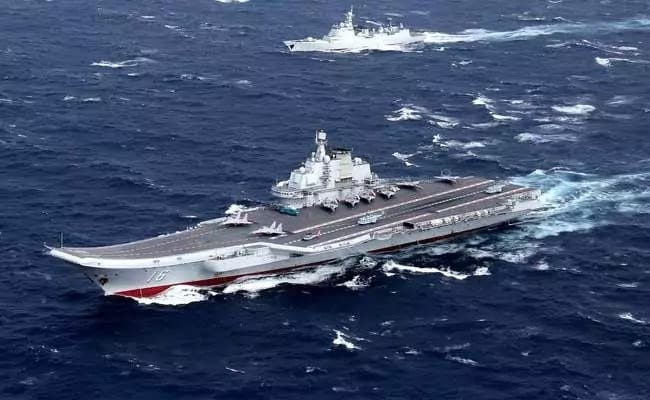
The Commander of the US Pacific Fleet, which also oversees the Indian Ocean region, has said Chinese deployment of aircraft carrier battle groups in the region is a distinct possibility in the near future.
''I would expect to see a (Chinese) carrier deployment. None of that should surprise anyone,'' said Admiral John Aquilino in response to a question from NDTV on the rapid pace of Chinese warship construction, the fastest by any nation in the world. The Admiral is on a visit to New Delhi to further the close military relations between the United States and India.
China already operates a full-fledged military base in Djibouti in the Horn of Africa and maintains constant deployment of advanced warships, including destroyers and frigates, which it says is in support of anti-piracy initiatives in the region. Several newly built Chinese warships, such as the Type 52D destroyer and the Type 54 frigate, are equipped with increasingly advanced anti-ship missiles, variants of which are being proliferated across the region, including the Pakistani armed forces.

Several newly built Chinese warships are equipped with advanced weaponry.
''The increased weaponisation you've identified by China is a threat to all free and like-minded nations,'' said Admiral Aquilino, who heads the world's largest fleet command with an area of responsibility that encompasses 100 million square miles, nearly half the Earth's surface. The fleet consists of 200 ships and submarines, nearly 1,200 aircraft and more than 1,30,000 sailors and civilians.
Over the last decade, China has also deployed nuclear-powered attack submarines in the region, which have often been tracked by the Indian Navy which works closely with the US Navy on gathering data on the real-time movement of Chinese military assets in the Indian Ocean region, India's area of specific interest. The presence of these submarines ''wouldn't see a stop'', said Admiral Aquilino. ''I would only see an expansion.''
India and the United States, close military partners and strategic partners, host the Malabar series of Naval exercises, some of the most sophisticated Naval war games in the world. An additional tri-services exercise that will feature a US Marine component is set to exercise with India's armed forces off the coast of Visakhapatnam later this year. By signing key "foundational agreements", military assets of both sides, including maritime reconnaissance aircraft and warships, are able to share tactical information, including radar and sonar data, through secure communications links. This allows close military interoperability of Indian and US forces.
Track Latest News Live on NDTV.com and get news updates from India and around the world

